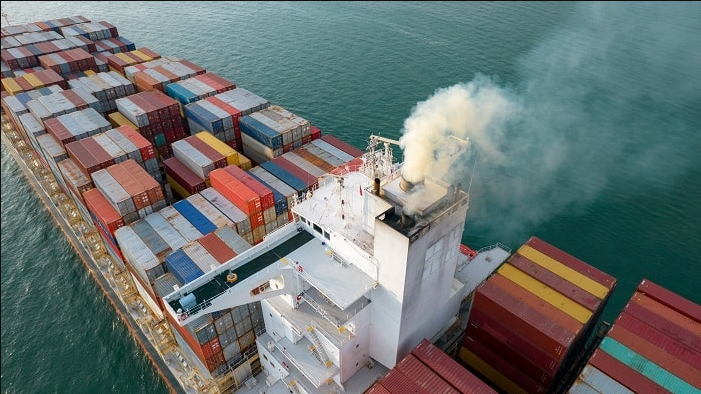The United States has warned it may impose visa restrictions, sanctions, and other retaliatory measures against countries that back a new international plan to cut greenhouse gas emissions from the global shipping industry.
The threat, issued on Friday, comes ahead of a crucial vote next week at the London-based International Maritime Organization (IMO) on its Net-Zero Framework, a proposal designed to steer the world’s shipping fleet towards carbon neutrality by mid-century.
The IMO, a United Nations agency, regulates global shipping — a sector responsible for transporting roughly 80 per cent of world trade and contributing about 3 per cent of global greenhouse gas emissions.
The IMO’s proposed framework seeks to introduce binding measures to reduce carbon dioxide output from vessels, including potential carbon pricing mechanisms and emission targets for international carriers.
While many major container shipping companies and environmental groups support the initiative, arguing that only a global regulatory system can ensure fair competition and real progress on decarbonisation, the proposal has sharply divided member states and industry players.
Several of the world’s largest oil tanker operators have voiced what they call “grave concerns” over the framework, warning that it could raise operational costs and disrupt energy transport.
In a joint statement on Friday, U.S. Secretary of State Marco Rubio, Energy Secretary Chris Wright, and Transportation Secretary Sean Duffy said Washington “unequivocally rejects” the plan and will “not tolerate any action that increases costs for our citizens, energy providers, shipping companies, or tourists.”
They argued that the IMO proposal “poses significant risks to the global economy” and effectively creates “an unsanctioned global tax regime that levies punitive and regressive financial penalties.”
The statement went further, warning that the U.S. is considering retaliatory steps against nations that vote in favour of the plan.
Such measures could include barring ships flagged under those countries from U.S. ports, imposing visa restrictions and additional fees, and sanctioning government officials accused of supporting ‘activist-driven climate policies’.
Supporters of the IMO framework, however, maintain that without unified international regulation, the maritime industry risks facing a patchwork of national or regional climate rules — a scenario that could raise costs and create uncertainty without effectively curbing emissions.
The vote next week is expected to be one of the most contentious in the IMO’s recent history, testing the balance between global climate ambitions and economic nationalism at a time when the shipping industry is under mounting pressure to accelerate its transition to cleaner fuels.
